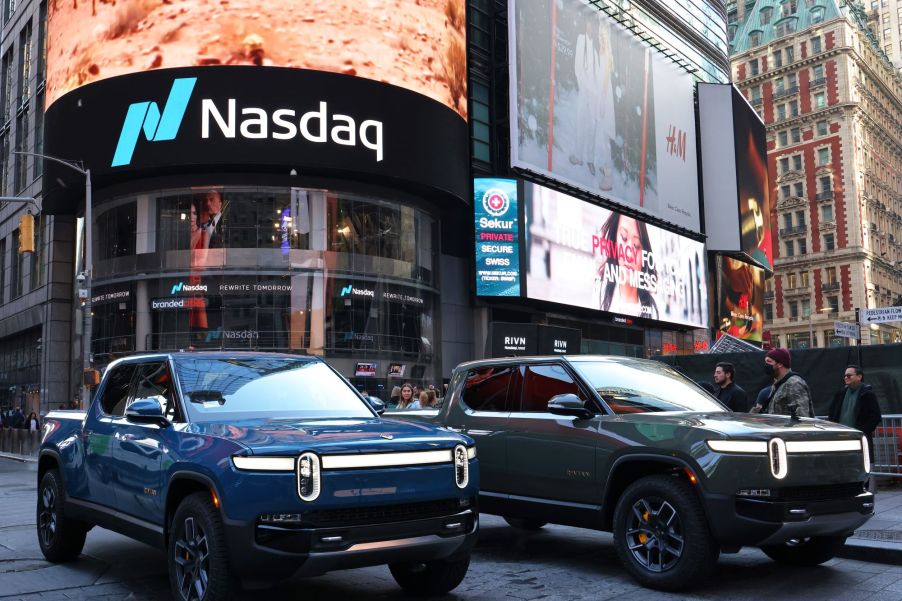
Ford’s Investment in Rivian Seems to Have Paid Off
While major corporations worldwide continue struggling amidst the pandemic, Ford sits remarkably strong. Taking advantage of its wealth and brand power, the car giant’s commitment to the future helps keep them at the top in more ways than one. With a recent investment in Rivian, the company is making money while others struggle to meet their bottom line.
Car sales during the pandemic

While far from alone, the auto industry suffered greatly at the onset of the coronavirus (COVID-19) outbreak. According to Ford, the company lost nearly $3 billion alone during the initial months. With the country going into lockdown and production coming to a halt, the industry sat on the loss while the world tried to move beyond the pandemic.
On top of the labor issues, the ongoing supply chain problems stalled the distribution of semiconductor chips. According to NBC, the collective setbacks pushed the industry to embrace the online marketplace in ways it never had before. As a result, the industry could offset some losses in a climate where car lots were no longer the ideal place to do business.
However, as other companies reeled from the two-year ordeal with no end in sight, Ford used its iconic forecasting skills to get ahead and move toward the next chapter.
Ford’s forward-thinking with Rivian
Ford’s futuristic forecasting dates back to its founder’s innovations. CarBuzz notes the ways its recent commitment to electric vehicles helped aim them toward the future in a country where gas prices are volatile and green energy becomes the norm. As such, the company invested $1.2 billion in Rivian during the pandemic, which contributed to initial losses but is now paying off in droves.
With people heading back to work and increased initiatives to invest in electric vehicles, Ford turned its $3 billion in losses from 2020 into a $13 billion gain the following year. The move immediately came into question by those who wondered if the investment would hurt F-150 sales. However, according to CarBuzz, the company asserts that while the F-150 is a workhorse, Rivian’s popular R1T pickup is for the casual driver who doesn’t need the complete Ford toughness.
“It’s been a great investment. We really like RJ and what he’s doing. The fact of the matter is we’re both in the same segments. We’ll work through that [but] I’ve always seen this as a strategic investment. There are a lot of possibilities that we could do with Rivian, beyond just building a vehicle together,” said Ford CEO John Farley. “We’ll look at everything. Everything is on the table. Our lock-up period ends in the middle of May.”
Despite this, the partnership was short-lived. While the brief investment was lucrative for both, CNBC reported that the two companies parted way in November. However, the entire incident shines a light on how the car industry is shifting toward the future.
An ever-changing industry
Ford’s commitment didn’t stop at the initial investment. The company announced it was investing an additional $20 billion to its initial $29 billion commitment toward electric vehicles in the future. While moves like this may be out of American reach, more electric vehicles should lower the price as more companies get on board.
As the old ways die and a new system is born, nobody is in the clear. However, Ford’s commitment toward the future should have a trickle-down effect on other companies. Thanks to the shift from on-site car sales to a hybrid sales model, sales were strengthened on the e-commerce side as sellers can reach a broader consumer base.
Ford is turning a profit while other corporations struggle. Where this goes is anyone’s guess. However, if Ford’s past futurism is a hint, other companies would be wise to get on board and look further into the 21st century.


